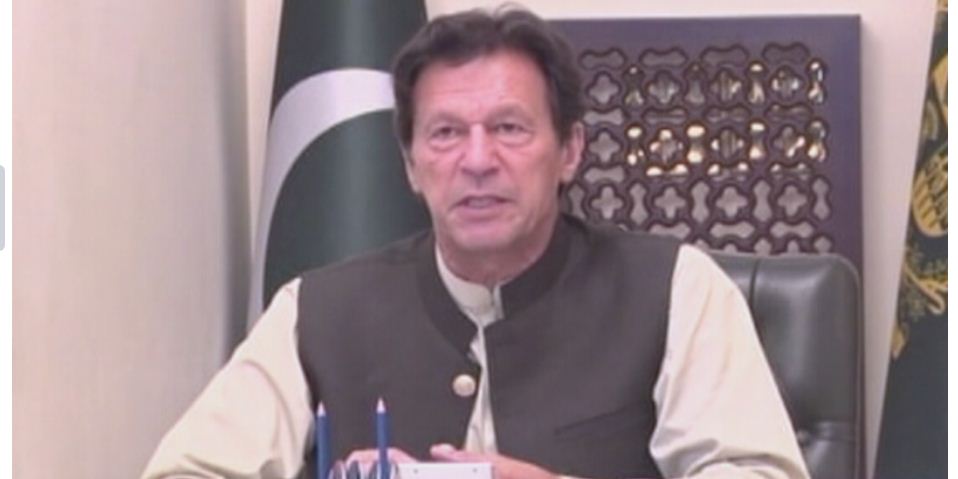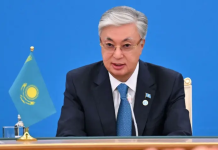ISLAMABAD – Prime Minister Imran Khan on Wednesday asked the country’s ambassadors serving abroad to forgo colonial-era attitudes and treat overseas Pakistanis with compassion, saying the current indifferent attitude towards expatriates was “unforgivable”.
Speaking to Pakistani envoys posted in capitals around the world virtually, the premier read out specific complaints received from overseas Pakistanis, especially those in Saudi Arabia and the United Arab Emirates, asking the embassies to put their affairs in order.
Referring to the issues that have come to light at the Pakistani missions in Riyadh and Jeddah, Prime Minister Imran acknowledged that he had not paid the matter as much attention as he would have liked because he was occupied with “domestic issues”.
He stressed that if Pakistan today had not gone bankrupt, it was because of the remittances sent home by overseas Pakistanis.
Recalling his own time in England as an overseas Pakistani, Imran regretted that the country’s embassies “by and large” treated educated, well-to-do expatriates with respect but were indifferent towards the labour classes.
“I remember some ambassadors used to have a really bad attitude with the labour community, like masters would deal their [subjects] in the colonial days,” he said.
The prime minister said after the government received complaints from Pakistani labourers in Saudi Arabia and following “one or two incidents”, he sought feedback about the embassy from some expatriates he knew. “The feedback was shocking … there was callousness and nobody worried about them,” he added, saying the reports matched the complaints received on the government’s Citizens Portal.
Last week, in an unprecedented move that sent alarm bells ringing across Pakistani diplomatic missions abroad, the government had suspended the outgoing ambassador to Saudi Arabia and recalled six diplomats posted at the embassy in Riyadh on allegations of improper treatment of Pakistanis living in the kingdom. An inquiry was also ordered against the envoy and the recalled diplomats.
“We cannot continue like this. The way our embassies are running, this could work in an old colonial system but not in today’s Pakistan. Embassies’ foremost work is to service the diaspora and then they should work to bring investment into the country that is going through very bad financial conditions right now,” Prime Minister Imran stressed, noting that Indian embassies abroad were “very proactive” in bringing investment to India as compared to Pakistani missions.
Imran said people went to embassies to avail 17 different services, but the feedback received from expatriates pointed to “unnecessary delays and complications in availing routine services, non-adherence to time commitments [and] indifferent attitude of staff, especially in embassies of UAE and Saudi Arabia”.
Noting that the highest remittances were received from UAE and Saudi Arabia, the prime minister said it was understandable that these two embassies would face the greatest pressure due to the high number of workers, but asked them to inform Islamabad if they needed extra help or support. “But indifferent attitude is just unforgivable, unacceptable,” he emphasised.
He said the government could not give jobs to all such labourers in Pakistan and they were forced to go abroad after a lot of difficulties and work long hours and live in crowded accommodations.
Continuing to read the complaints, Imran said top-level supervision at the embassies was either found “missing or taken for granted in case of public grievances”. He added that this was specifically the case with the ambassador in Saudi Arabia, saying the findings of a high-level inquiry into the matter would be completed by next week.
“Complaints resolution approach of the embassies is mostly firefighting and lacks a passion to solve these issues; no policy-level decisions or permanent resolution approach is adopted to the issues frequently highlighted; no formal communication channels are kept at hand to keep the Pakistani diaspora updated about the embassies’ working hours [and] services,” the premier said.
He continued: “No proactive steps have been taken to regularly check the conduct and attitude of the staff.
Imran then proceeded to read out specific complaints lodged by expatriates in Qatar, Saudi Arabia and Kuwait and the response given to them by the Pakistani embassies, which he termed as unsatisfactory and “bureaucratic”.
One case concerned an overseas Pakistani who complained that they were given polio drops upon landing in Saudi Arabia on every instance, despite showing the attested vaccination certificate issued by Saudi Arabia. This person was told by the embassy that it could not interfere in the matter as the kingdom was a sovereign country, according to the premier.
In order to reverse course, Prime Minister Imran said he desired “clear” monitoring of issues overseen by the ambassadors themselves. A special officer should be appointed to look into feedback and the complaints received on the Citizens Portal, he suggested.
The premier said:
- Monitoring should be done so the people working efficiently are encouraged and those who are not are punished
- Labourers should be treated with compassion and given special treatment in order to ease their problems, and not sent back due to “frivolous” reasons
- A cell with lawyers available should be formed to look after the welfare of Pakistanis imprisoned in jails abroad in frivolous cases. The government is ready to provide funds to this end and to pay fines for people jailed over small crimes
- Evaluation should be conducted to assess which embassies are working to bring more investors and foreign investment into the country.

















